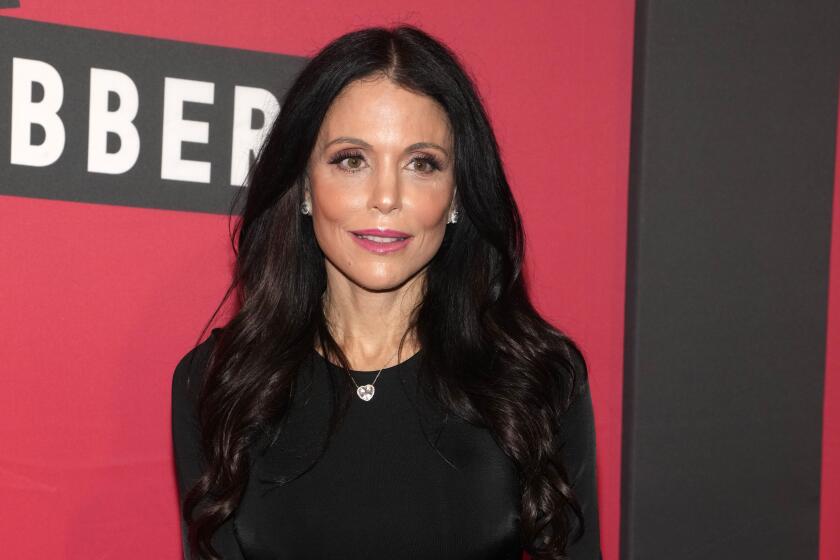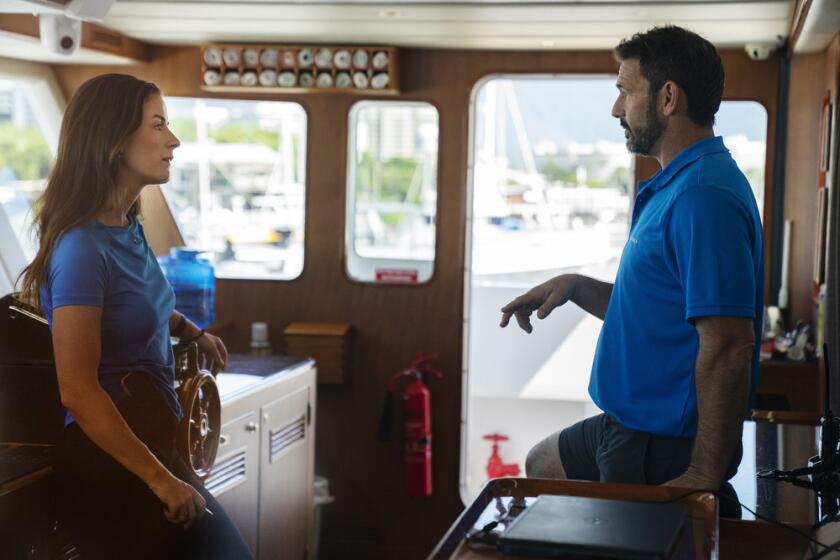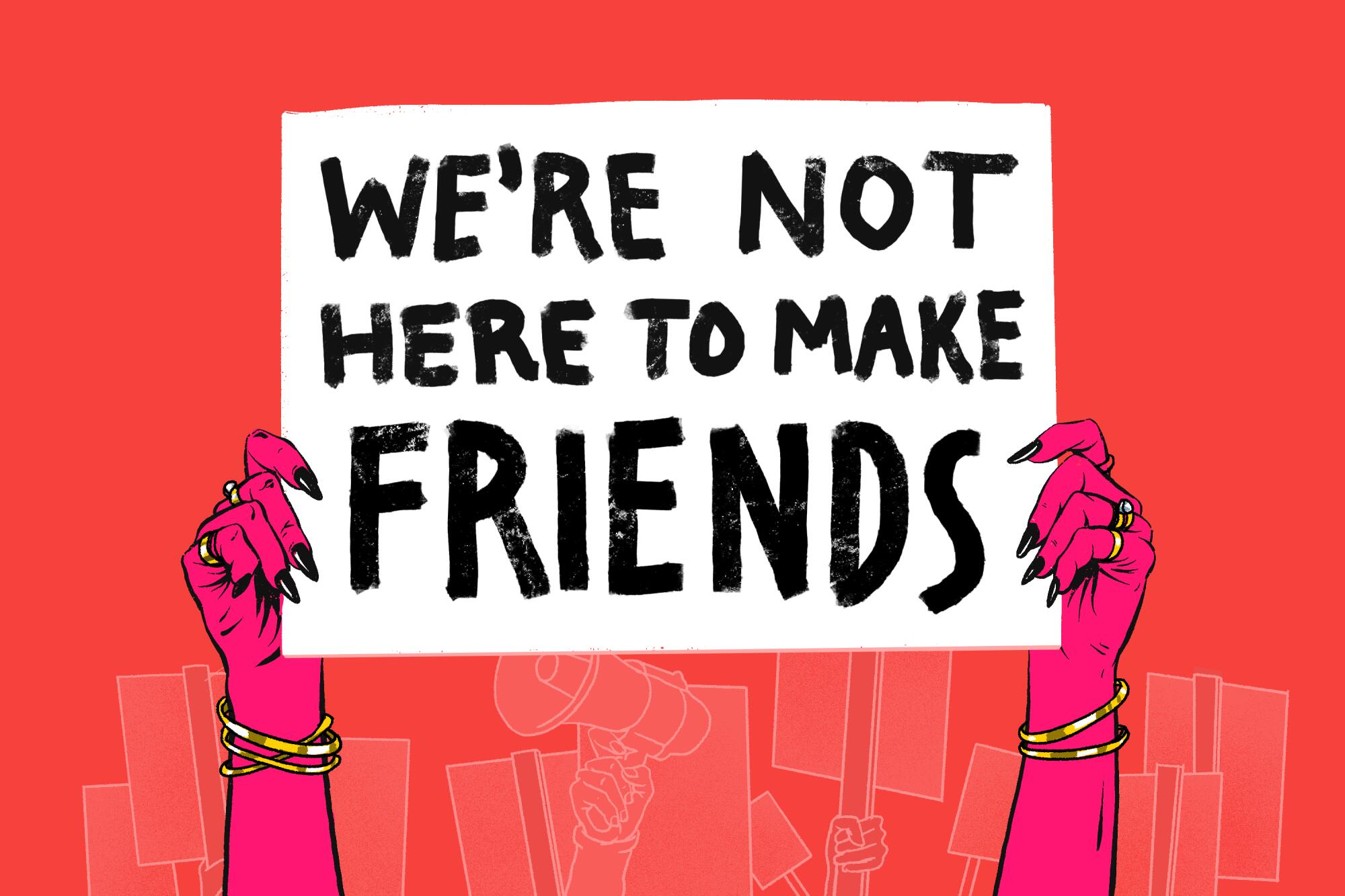
- Share via
Few people would mistake Bethenny Frankel for a champion of the working class. The former “Real Housewives of New York City” star, who sold her Skinnygirl cocktail business for a reported $120 million in 2011, is often seen flaunting her lavish lifestyle on social media with posts about luxurious vacations and designer outfits.
But Frankel, a pioneer of parlaying reality TV fame into wealth, became the Bravo era’s answer to Norma Rae this summer when she attempted to ignite a movement she dubbed “the reality reckoning.” In a series of posts on Instagram, Frankel urged her fellow unscripted performers to fight for union protections and push for industry-wide standards for talent, including a minimum fee of $5,000 per episode, a 10% raise for each season, and the option to negotiate for additional increases if a show is successful.
“Reality stars are the stepchildren, the losers, the mules, the packhorses, the ones that the entertainment industry is going to rely on right now to carry the water and do the heavy lifting when real stars — real A-list Hollywood — is on strike,” Frankel said in one of the videos.
Frankel’s unlikely push to unionize unscripted talent arrives at a critical time in Hollywood’s labor movement. The dual strikes by writers and actors guilds this summer brought much of the entertainment industry to a halt — and though the Writers Guild of America recently came to an agreement with Hollywood studios, TV networks continue to depend heavily on unscripted fare. The Screen Actors Guild-American Federation of Television and Radio Artists, whose 160,000 members remain on strike, released a statement supporting Frankel’s push and encouraging other reality performers to contact the guild in order to stop studios from “exploit[ing] the talent that they rely upon to make their product.”
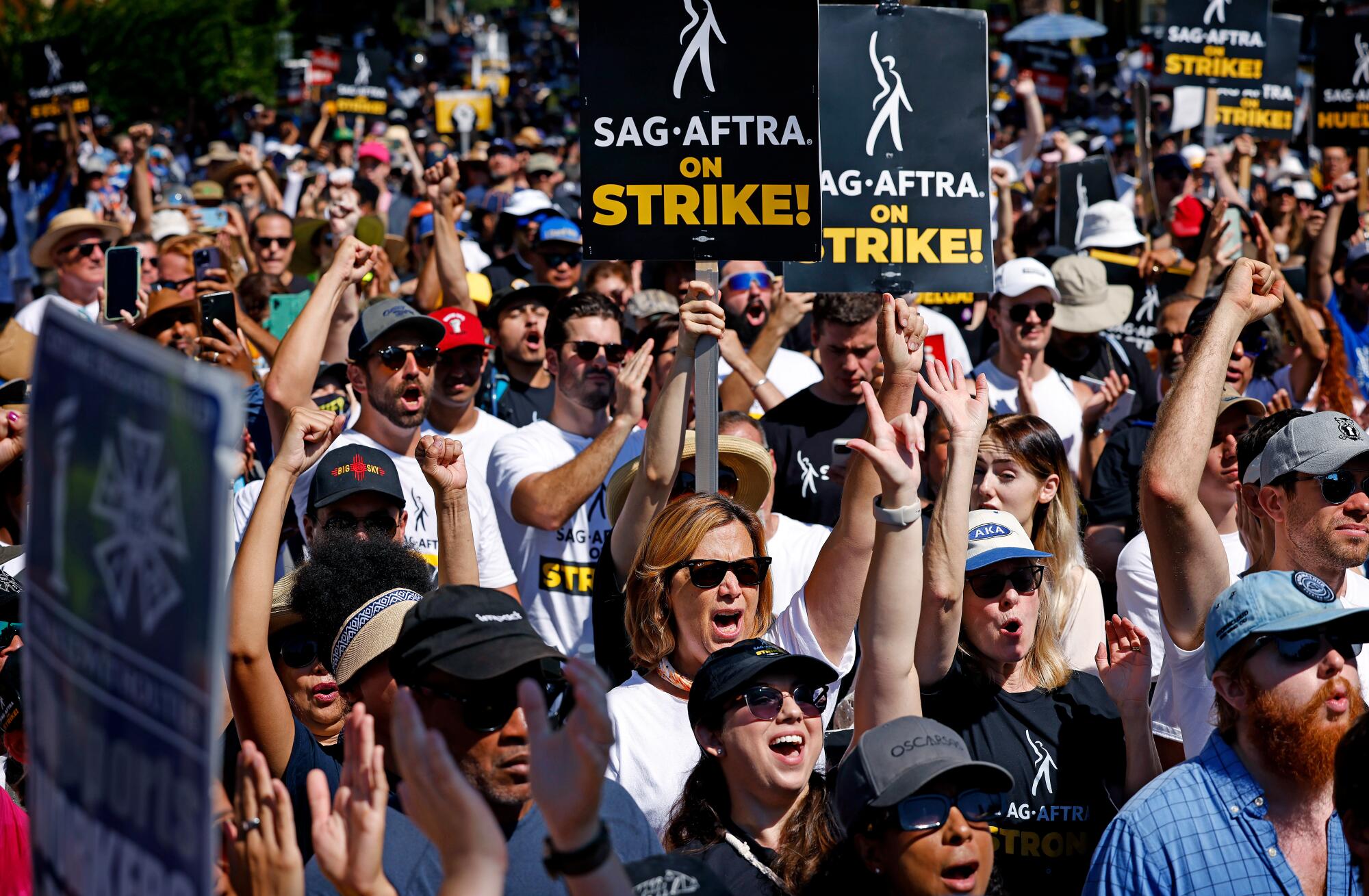
But some proponents of the call to unionize reality TV talent are concerned the efforts to organize could lose momentum, and leverage, when Hollywood fully returns to work.
After Bethenny Frankel and others raised concerns about the treatment of reality stars, actors guild SAG-AFTRA on Thursday said it is engaged in discussions with Frankel’s attorney.
“It’s bittersweet,” said Shab Azma, a talent manager and founder of Arc Collective, which largely represents unscripted TV talent. “We’re so happy for the unions that are getting what they need, but there’s this whole faction of people that don’t even have a union and need a union ... The wins the WGA has gotten and what SAG-AFTRA is still fighting for, my unscripted talent don’t even have — things like improvements on streaming and improvements on residuals.”

Subscribers get exclusive access to this story
We’re offering L.A. Times subscribers special access to our best journalism. Thank you for your support.
Explore more Subscriber Exclusive content.
How workers and studios are responding
Since lighting the match with her video blasts, Frankel has teamed up with powerful showbiz attorneys Mark Geragos and Bryan Freedman to investigate the treatment of people on unscripted shows.
In August, the legal team sent a combative letter accusing NBCUniversal, which has a robust reality slate across its networks including NBC, Bravo and E!, of “depraved and grotesque mistreatment” on set and condemning its use of nondisclosure agreements, which they say prevent people from speaking out about misconduct. The letter did not list the names of the individuals represented, and there were no specific allegations included. In a statement, a Bravo spokesperson said that confidentiality clauses are standard practice in reality TV to prevent storylines from being disclosed but that they don’t prevent cast or crew from speaking up about unlawful or inappropriate conduct on set. The statement also said the network is working with production companies to remind workers that they are encouraged to report such concerns so they can be promptly addressed.
Frankel has also taken the campaign to her podcast, “ReWives,” where she has shared lengthy conversations about the perils of reality TV, and the particularly fraught dynamics of Bravo, with Rachel Leviss, whose affair with “Vanderpump Rules” castmate Tom Sandoval became a national obsession this spring, and NeNe Leakes, former star of “The Real Housewives of Atlanta.”
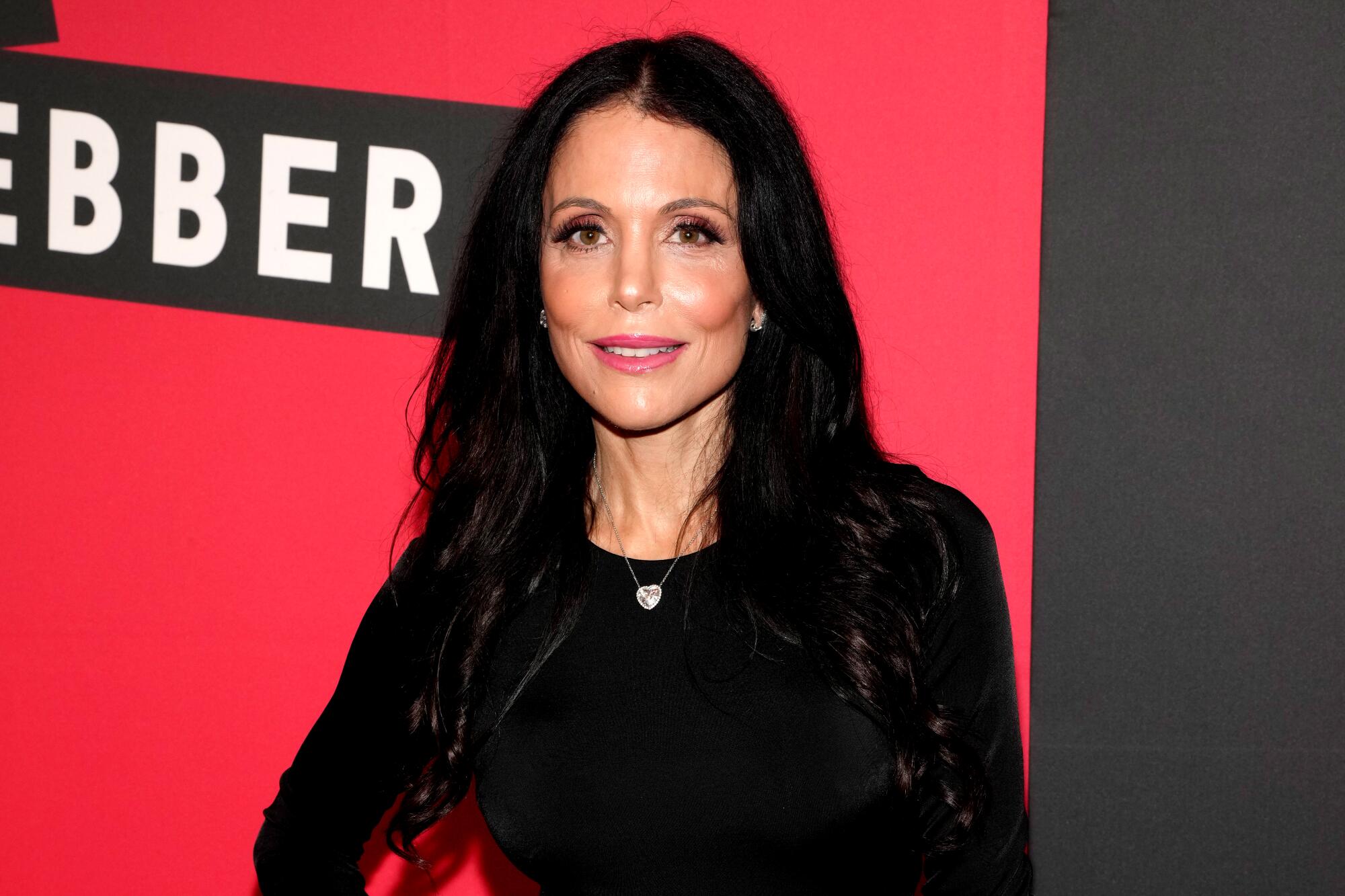
As a result, Geragos and Freedman said in separate interviews with The Times, they received calls from reality TV workers — stars and crew alike — who believe they were exploited, abused or mistreated. They claimed those individuals feared speaking out publicly.
“The reaction to this has just been unbelievable, frankly,” said Geragos. “And it’s clear that the studios and production companies are scrambling to deal with it.”
In correspondence reviewed by The Times, NBCUniversal recently notified external production companies of changes to strengthen workplace conduct guidelines for its reality shows, including expanded alcohol-related training for cast, crew and production, as well as more comprehensive psychological care through the airing of a show and afterward. The changes follow an attempt to bolster protocols in 2020. (NBC declined to comment on the production memo it distributed to its partners.)
Freedman compared the protocols outlined in the document to the behavior of a teenager whose mother finds weed in his drawer. “You go around and get rid of all that s— and try to clean it up as quickly as you can: ‘That’s not really mine.’ That is exactly what they’re doing,” he said.
The move comes after an episode of Bravo’s “Below Deck Down Under” that premiered in August, in which two cast members, Luke Jones and Laura Bileskalne, were accused of misconduct — they each tried to get in the beds of fellow yacht workers without consent — after a night of heavy drinking. Both were subsequently fired. Jones apologized for his actions on the show, and Bileskalne wrote an apology on Instagram after the episode aired. While some fans praised the ship’s leaders for quickly dealing with the issue, others saw it as evidence of the problems inherent to a show that follows co-workers who live together and often drink to excess on their days off.
‘It was about safety’: Why the leaders on ‘Below Deck Down Under’ fired two castmates for misconduct
Nadine Rajabi, an executive producer on the series, and the yacht’s leaders, Aesha Scott and Jason Chambers, explain the events that led to Luke Jones and Laura Bileskalne being fired.
Frankel’s crusade is merely the latest — and loudest — call for reform in a much-maligned but reliably lucrative and popular genre. It follows the formation of the Unscripted Cast Advocacy Network, a group providing mental health and legal support to reality TV participants, by Jeremy Hartwell and Nick Thompson, former contestants on Netflix’s “Love Is Blind,” who claim they were mistreated while making the dating series.
And last year, Leakes, the former star of “The Real Housewives of Atlanta” and one of Bravo’s most recognizable personalities, filed a lawsuit against the show’s producers, including Bravo host and producer Andy Cohen, claiming they “foster a corporate and workplace culture in which racially-insensitive and inappropriate behavior is tolerated — if not, encouraged.” Leakes later dropped the suit without explanation.
Reality TV stars: Ordinary people or performers?
Once dismissed as the lowest common denominator in TV and perceived as a gap-filler during the writers’ strike of 2007-08, the unscripted format has matured into essential programming for networks and streaming services. Not only is it popular with viewers, with many shows developing a loyal and even obsessive fan base, it is inexpensive to produce compared with scripted TV.
Now firmly established as a pop culture cornerstone, reality TV is poised for its own Hollywood reckoning as some talent seek to receive similar pay and benefits guarantees that go to unionized performers in scripted TV. Such a move could drastically change the business of the genre as it faces mounting scrutiny over claims of unfair pay and exploitative working conditions.
Reality TV stars are often looked down upon as fame-hungry strivers and not as people with a talent for turning their lives into entertainment. While their jobs don’t require memorizing pages of dialogue or mastering new accents, reality TV can be as psychologically punishing and physically demanding as any other dramatic role, whether the show is competition-based or lifestyle-focused. Participants are expected to provide wide access to their lives, documented over long days of shooting, to capture authentic moments within a heavily-produced framework that make franchises like “The Bachelor,” “Love Island” and “Real Housewives” worth watching.
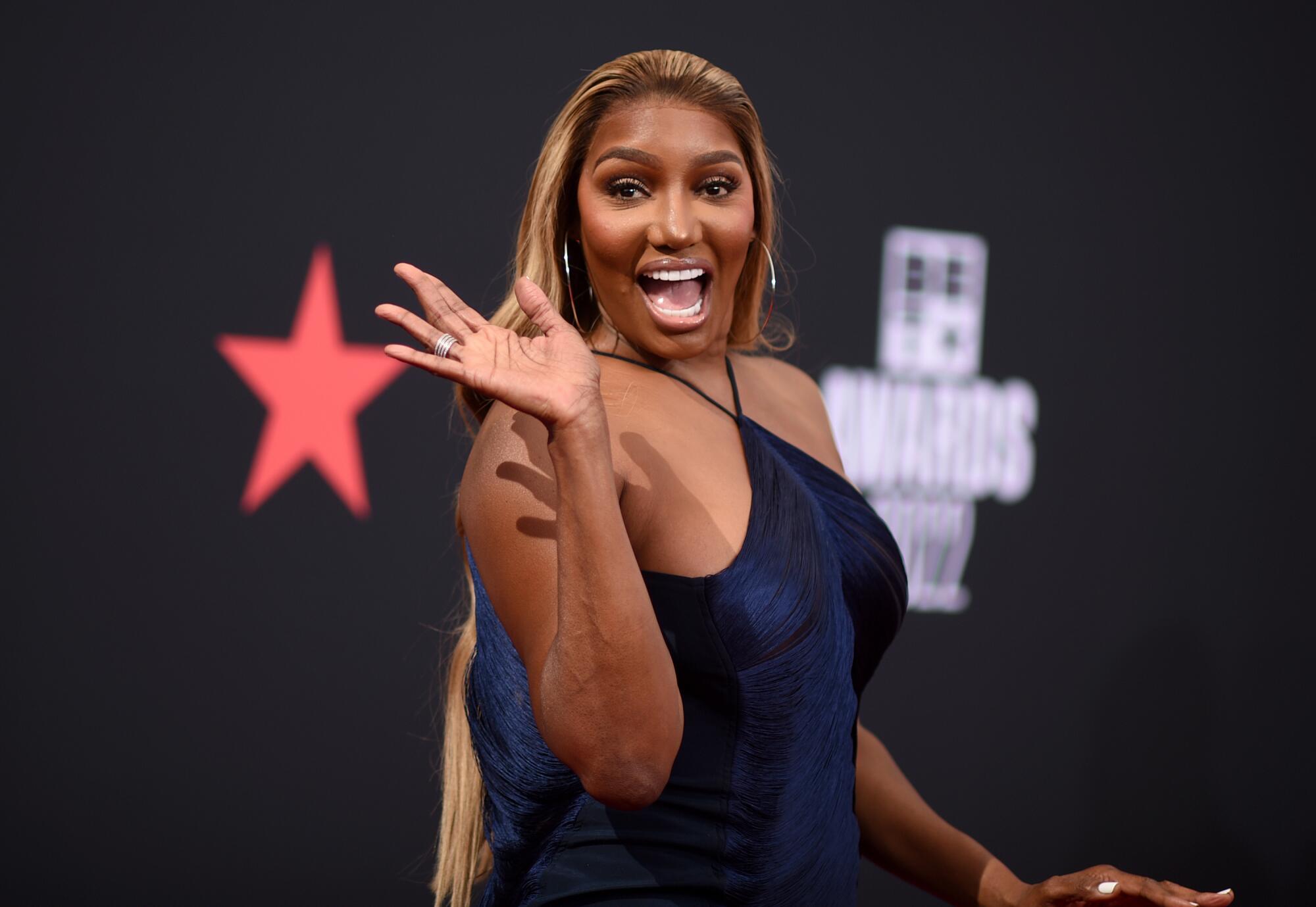
Many shows within the genre spotlight people in their most vulnerable moment, and the financial benefits tend to be meager. That’s one reason why Freedman said there should be firmer guardrails to protect reality stars and to provide fair compensation. “People say, ‘Well, they signed up for this.’ Really? We have crosswalks because we don’t trust that people are going to look both ways and not get smacked by a car,” he said.
Susan Murray, a professor of media, culture and communication at New York University and co-editor of “Reality TV: Remaking Television Culture,” isn’t surprised the format has ignited conversations about labor conditions and pay at this stage in its prominence.
“It calls the industry on the game that they played with reality TV, which is that these are all just ordinary people. Their reward is to get fame or promotion, or what have you, but they’re not really performers — celebrity is something that comes second to this,” she said. “When what we’ve learned, over a long time, is they build characters, they ask people to fit into characters. There is a structure of performance that is part of reality — that is labor. Calling it reality TV and that these are real, ordinary people, they’re not extraordinary celebrities, has allowed the industry to profit from them. Yes, [they] give them pay, but not at the extent that a working actor would.”
For most veteran reality performers, becoming the next Kim Kardashian is a fantasy as remote as becoming the next Meryl Streep. Few have the leverage to negotiate massive salaries, and most do not earn residual payments for appearing on camera — even as programs like “The Hills” and “90 Day Fiancé” air in a constant loop as reruns on their respective networks. Because there are no pay scale standards for unscripted talent, the size of a paycheck can vary drastically. Depending on the network and type of show, as well as the bargaining power of the individual, salaries can range, on average, from as low as $1,000 per episode to the upper six figures per season — some may even agree to be on TV for free.
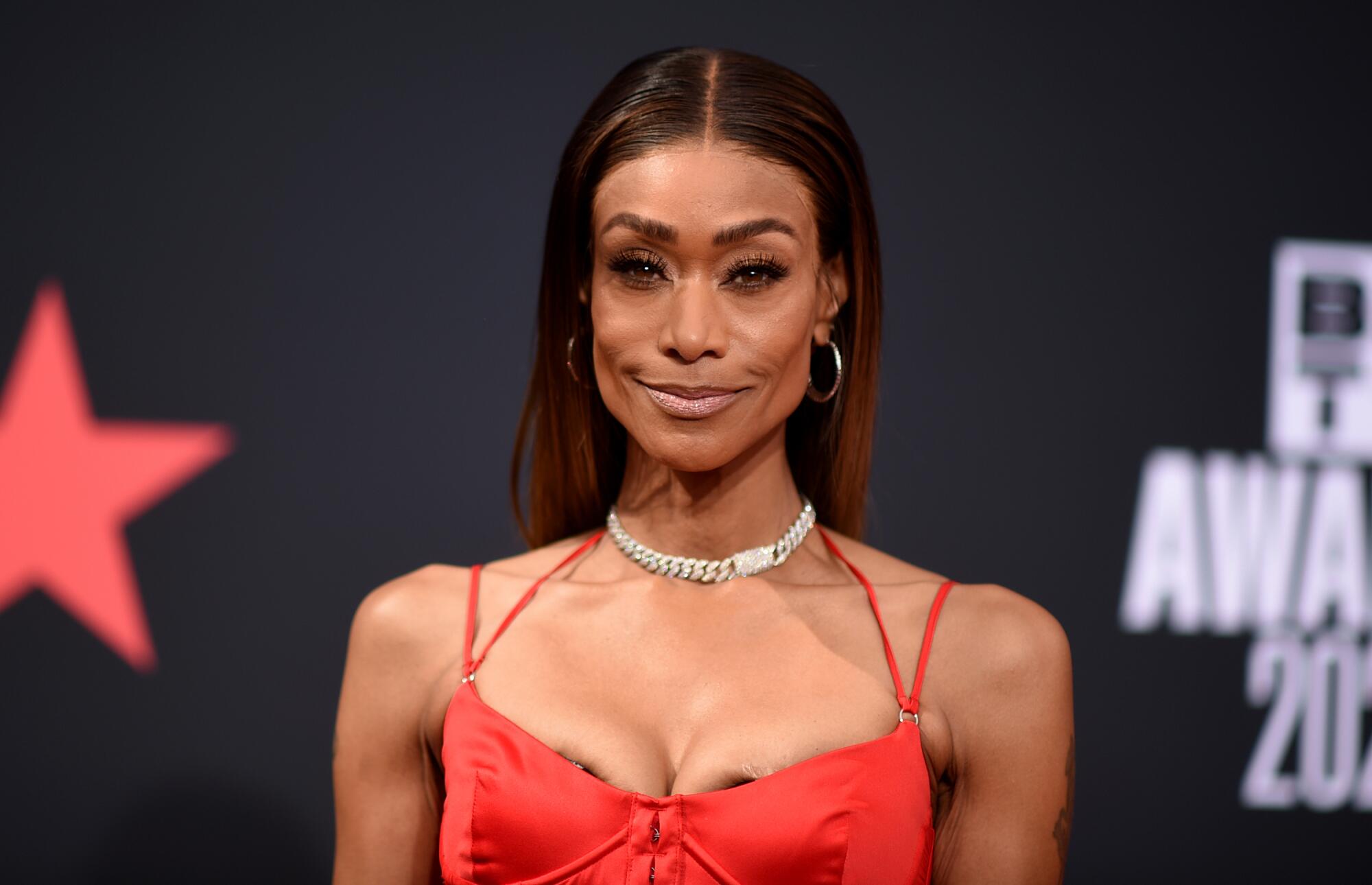
Tami Roman, who appeared on reality shows such as MTV’s “Real World: Los Angeles” and VH1’s “Basketball Wives” and scripted series like CBS’ “Extant” and Apple TV+’s “Truth Be Told,” said compensation is in need of a significant overhaul.
“On the scripted side, we’re playing characters,” Roman said. “We get lines, we show up, we have our trailers, we have craft service. We’ve got a wardrobe department — we don’t have to wear our own clothes. We’re not going into debt trying to keep up aesthetics for the audience.” In reality TV, by contrast, the audience is “commenting on your real life, your parenting, your relationship, your friendships, everything about your personal trials and tribulations. You’re putting it out there for the world to see.” And yet, she said of her peers in the genre, “People are still being paid pennies.”
Tiffany Moon, an anesthesiologist, appeared in one season of “The Real Housewives of Dallas” before it was effectively canceled by Bravo. Moon was paid comparatively well for her first season — earning roughly the equivalent, she said, of a public school teacher’s salary for 12 weeks of filming and also receiving what she referred to as a “good behavior” bonus for each of the 18 episodes she starred in. (According to Moon, co-stars who’d been with the show since Season 1 and moved up the pay scale earned about mid six-figures, a sum comparable to her salary as an anesthesiologist.)
“I never did the show for money,” she said. “But I think I lost money from my first and only season of being on TV.”
Moon partly attributes the deficit to having to pay out of pocket for hair and makeup before group events. Production covers styling costs for confessional interviews, but not for day-to-day filming, she said, which a source close to the production confirmed. “The reasoning is you don’t need hair and makeup,” Moon said. “But it’s like, no, I do. I’m not going on national TV looking like a bum.”
She also said she used vacation days from work so she would be available for filming, and paid significant legal fees stemming from a dispute with a co-star.
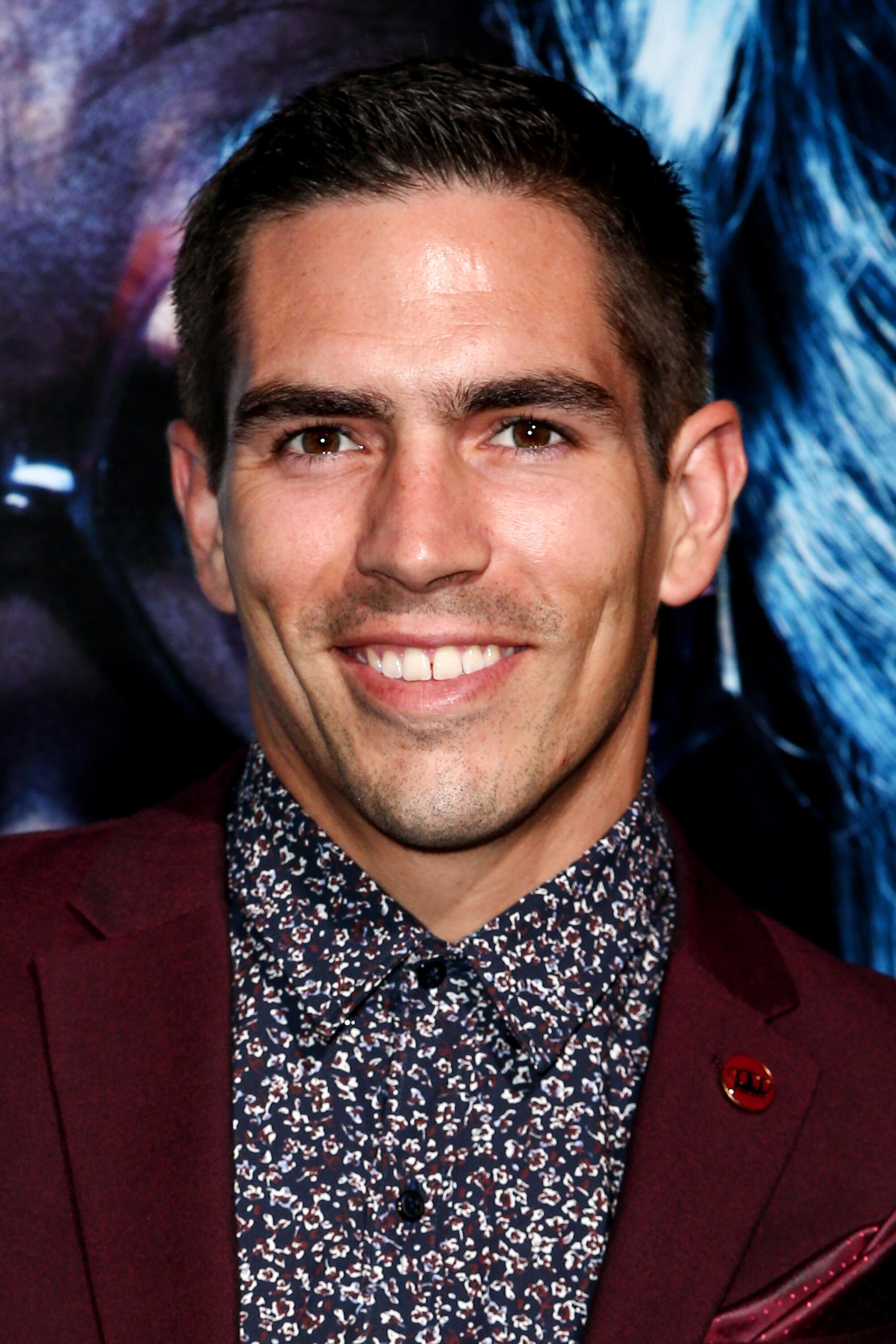
Jordan Wiseley, like Roman, got his start on “The Real World.” In 2013, he was cast in the 28th season of the landmark MTV reality show, which was set in Portland, Ore. Then an aspiring actor and stuntman, he earned just $300 a week, receiving $200 upfront and the remaining wages at the end of filming. Though he was allowed to get a job at a select list of businesses, Wiseley was barred from working more than 15 hours a week. Paramount declined to comment on payment structures for episodes that aired a decade ago.
He soon went on to star in “The Challenge,” the “Survivor”-like spinoff starring veterans of “The Real World,” “Road Rules” and other Paramount programs that has become a powerhouse franchise in its own right. The money was a lot better — or at least it seemed that way.
Returning year after year to the series, which premiered in 1998, longtime competitors have helped make ‘The Challenge’ the ‘Boyhood’ of reality TV.
Wiseley was thrilled to make $3,000 a week, totaling up to $24,000 for two months of work for his first season on “The Challenge.” But as he quickly learned, there were strings attached. Some of the money was withheld until the show finished airing — a way, he said, of ensuring that he promoted it on social media — and he was largely restricted from doing other reality shows. “You’re like, that’s not bad,” he said. “Then you realize, ‘Oh, I have to make that $24,000 last for another like six or seven months.’” Wiseley, who was born without fingers on his left hand, has won four seasons of the show, which comes with a large cash prize, and participated in 10 overall. A source close to the production told The Times it is standard practice to withhold part of a contestant’s stipend until the show has aired.
Residuals, workdays and mental health
A major focus for writers and actors during the strikes has been residuals, which is the system of payments received when a project gets replayed. In particular, the WGA and SAG-AFTRA have argued that the residuals their members receive for content produced for streaming services are insufficient. Reality TV stars typically do not receive such financial compensation when their shows get replayed across platforms. Frankel has repeatedly claimed she was paid just over $7,000 for her first season of “The Real Housewives of New York City” 15 years ago, even as her likeness is used to promote it in territories around the world.
Nearly 20 years ago, as a contestant in the fourth season of “America’s Next Top Model,” Brittany Brower received a per diem of roughly a few hundred dollars every four days, which went toward groceries and other expenses. She acknowledges she was in a better position than some of her co-stars because she lived with her parents prior to filming and didn’t have rent to pay. She later returned for the show’s All-Star season in 2011, receiving $1,000 per episode. (She was the first to be eliminated, but continued filming in the background to thwart spoilers.) Now, past seasons of the series are available to stream on Hulu and finding an audience long after its original run.
“That’s what’s so sad or disturbing about all of this,” Brower said. “You’re seeing me for better or worse, for how it ages or doesn’t age well. It’s your character that’s around forever. But where’s the compensation? People are constantly messaging me, saying they’re watching my season. We all have cringe moments on these shows. It would make things sting a little less to know they lived on if I was able to put this in my kid’s college fund. “
The big paydays often come when reality stars leverage their popularity into launching or promoting product lines, whether it’s low-calorie vodka, accessories, three-wick candles or healing crystals. Former “Love Is Blind” stars Deepti Vempati and Natalie Lee recently told Forbes they quit their six-figure corporate jobs to become full-time content creators, generating income via brand deals for companies such as Burt’s Bees, Fidelity Investments and Stitch Fix.
But conditions on set may be an even bigger issue than pay, reality TV workers told The Times.
On “The Challenge,” contestants are filmed during competition, at their residence — where cameras are ubiquitous — and while they are out. Wiseley said 20-hour filming days were not unusual: Producers could get them out of bed at 5 or 5:30 a.m. and put them on a bus to an exotic, remote location three hours away to film a challenge. After competing all day, he said they’d return home, have 30 minutes to shower and change, then go out to bars for three to four more hours of filming. Neither Paramount nor Bunim Murray Productions, which produces the show, responded to Wiseley’s allegation of 20-hour days, but a source close to the production said that contestants were not obligated to participate in leisure activities and can choose to rest and not be documented.
It was hard to get complaints about working conditions — like getting better food on set — to the people in charge, Wiseley said. “If we want something done, we basically have to go on strike then and there,” he said. The source close to production said participants were provided with three catered meals a day on location.
“Since it debuted in 1998, ‘The Challenge’ has developed extensive production and safety protocols to ensure the well-being of our participants, and everyone involved in the production,” Bunim Murray said in a statement to The Times. “We’re constantly evolving these measures to remain best in class — which is one of the many reasons why we’ve seen competitors like Jordan return year after year.”
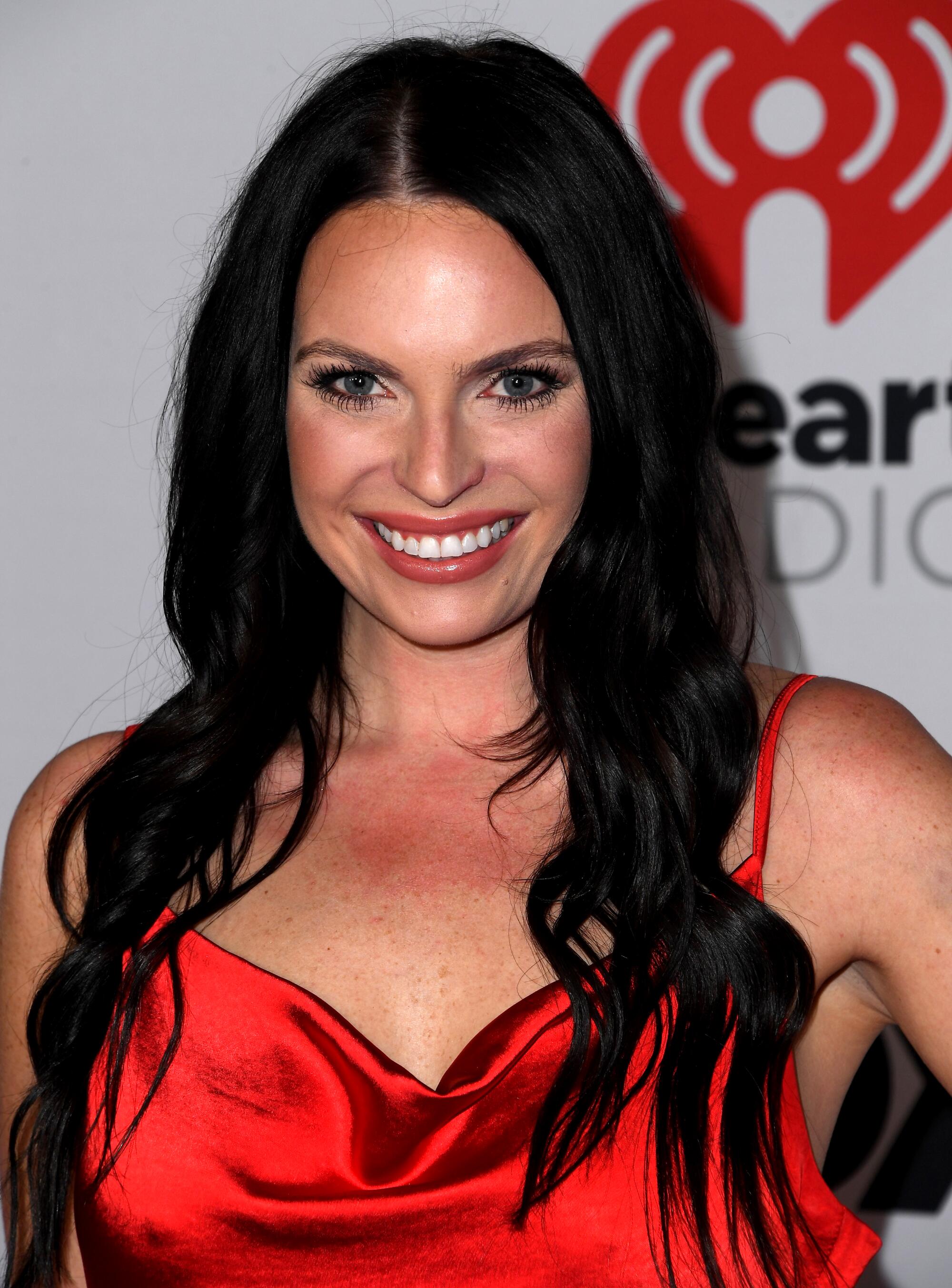
Danielle Ruhl has been vocal about the negative experience she said she had while filming the second season of “Love Is Blind.” Following its premiere in early 2020, the series quickly became a social media sensation with its bizarre premise — a group of men and a group of women are kept in separate quarters and left to speed date in pods, where they can converse for hours but not see each other, over the course of 10 days. Creating such addictive drama came at a mental price, Ruhl said.
During the second season, fans watched as she and Thompson made their way to the altar with plenty of conflict. Her body image and other insecurities were part of her storyline, as was a panic attack documented on the show. Ruhl, who first publicly shared details of her experience in a report earlier this year by Insider, said she became depressed while filming because of the way producers prodded her about her traumas. Adding to the pressure were taxing working conditions.
“I didn’t know it was going to be 20-hour filming days,” Ruhl told The Times, echoing claims made by a cast mate. “We were only allowed to go outside for the bathroom, which we had to be escorted to by producers. I have stomach issues; I’d be crying by the set door, begging for a producer to bring me to the bathroom so I don’t get sick.”
In a 2022 lawsuit against Netflix and production company Kinetic Content citing “inhumane working conditions,” Ruhl’s fellow Season 2 cast mate Jeremy Hartwell also alleged that workdays lasted up to 20 hours, seven days a week. Kinetic has denied the allegations in both the lawsuit and the Insider report.
Kinetic Content declined to comment for this story and Netflix did not respond to multiple requests for comment, but in an interview with Variety, Kinetic CEO and “Love Is Blind” showrunner Chris Coelen defended the show’s working conditions and said Ruhl did not disclose her mental health issues prior to filming. He also said that pods, where contestants are filmed, have never been open for more than 16 hours a day. Pods are described by Netflix as 12-by-12-foot rooms that are outfitted with a couch and a rug and don’t have a restroom, but the streamer said there are restrooms located in the lounges for contestants. Coelen said in the Variety interview that participants are able to nap in the lounge or take a shuttle back to their hotel at any time, and that they are given catered meals and bottled water.
Alcohol also plays a huge part in many reality shows, particularly “The Real Housewives,” where excessive drinking fuels the messy spectacle and it’s not unusual to see a middle-aged woman throwing up after consuming five espresso martinis. Moon said that alcohol was “always readily available” on the set of “RHOD” and that producers quickly took note of everyone’s favorite drink — though, she added, “no one is putting the drink in your hand,” and her limits were always respected by producers.
Seeing the darker side of reality TV can be sobering. After being plucked from obscurity, many reality TV stars have suffered mental health problems and often endure intense online harassment. In less than two years, three people who appeared on the U.K.’s hugely popular “Love Island” — host Caroline Flack and contestants Michael Thalassitis and Sophie Gradon — died by suicide, prompting public outcry and eventually leading producers to provide more robust mental health support to show participants.
Suicide prevention and crisis counseling resources
If you or someone you know is struggling with suicidal thoughts, seek help from a professional and call 9-8-8. The United States’ first nationwide three-digit mental health crisis hotline 988 will connect callers with trained mental health counselors. Text “HOME” to 741741 in the U.S. and Canada to reach the Crisis Text Line.
Who should be covered by a union contract?
Reality workers are not alone in calling for better pay and workplace conditions. Last year, 5,500 minor league baseball players, tired of grim working conditions and low wages, successfully unionized. In recent weeks, video game performers authorized a strike and the United Auto Workers of America expanded theirs to include more than 40 facilities (the union recently reached an agreement with Ford). Could reality TV workers use the momentum in the labor movement to spur change?
“As representatives of reality talent, we’ve all been wanting this for such a long time,” said Azma, the talent manager and founder of Arc Collective. “There is no reason why unscripted talent shouldn’t be getting basic things like residuals and pension and healthcare. Even the concerns around AI — this is all stuff that unscripted talent has every right to be advocating for protections over. You’re at the disposal of each contract, and each contract is so different than the other. It’d be nice to have a framework that we can always be working from.”
In some instances, SAG-AFTRA represents reality stars and can cover them under its Network Code Agreement, depending on the structure of the production and performers involved. Under the current agreement, which covers programming like daytime dramas, game shows and variety shows, performers but not participants on unscripted shows on network TV are covered. In other words, “Survivor” host Jeff Probst would be subject to the agreement, but not a contestant on the series. The current agreement is up for renewal next year and may offer an opportunity to expand who is covered.
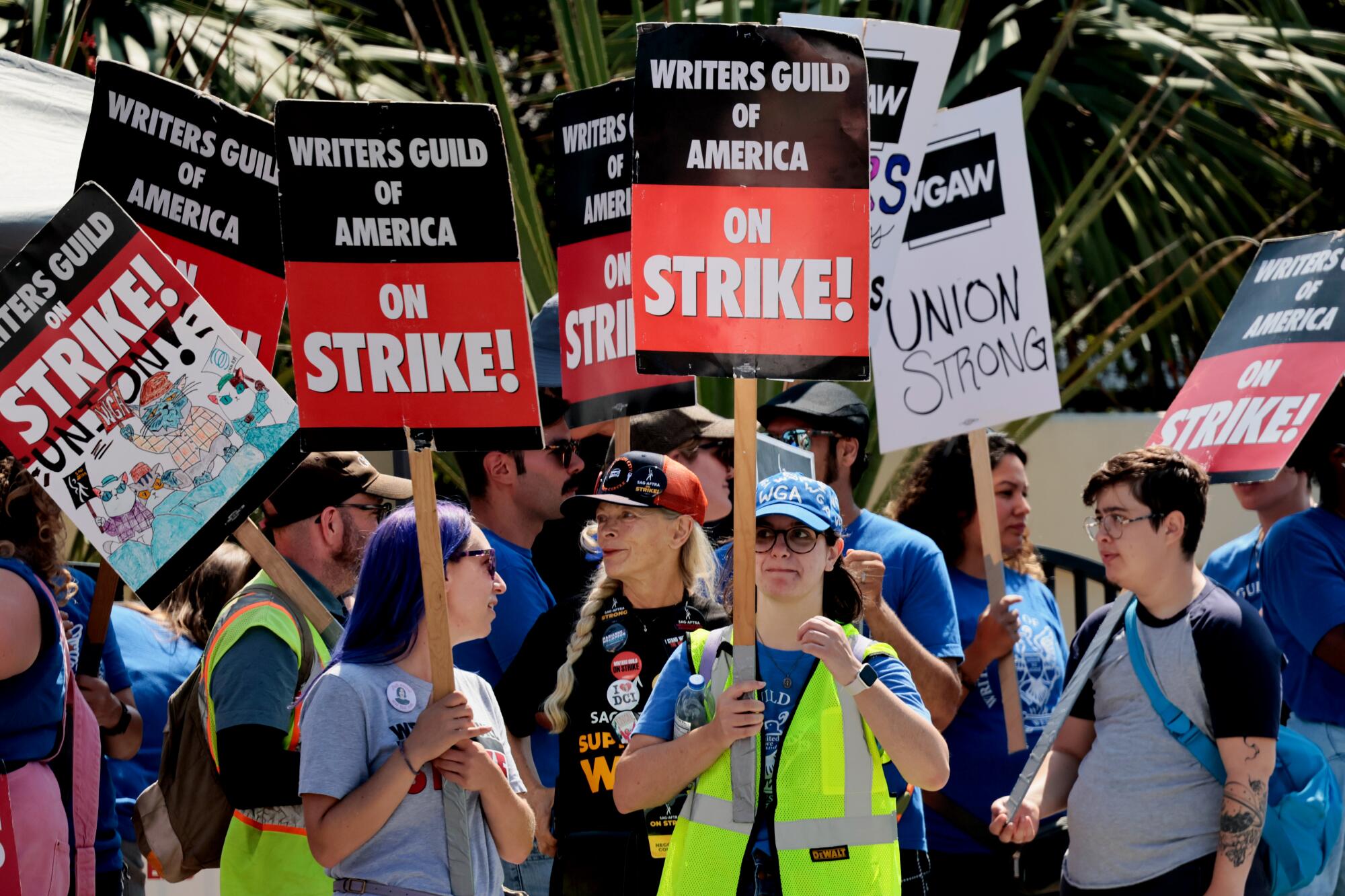
“There’s a sort of mythology out there that there’s not a union for reality shows, and it’s untrue. We do cover these shows, it’s just that a lot of these participants are not covered as performers under the contract,” said Steve Meicke, SAG-AFTRA senior director, Entertainment Contracts.
One question the guild is grappling with, he said, is exactly how to define those terms: “If you are on ‘Jersey Shore’ for five, six, seven seasons, are you still just a participant? Where does the line start? Is it Season 2, where you’re a performer and no longer a participant?”
Additionally, Meicke said the stories they’ve heard about the conditions on nonunion shows has them interested in seeing how the actors union could assist. “We are interested in increasing who we cover or help in some kind of way because we’ve heard enough anecdotes where we think it’s sort of like the wild west with these shows.”
If reality TV’s current union drive, the first to be led by onscreen talent, is successful, it would be a landmark shift in the entertainment industry. In 2005, in one of the early attempts at such an effort, WGA West, which represents thousands of of film and TV screenwriters, said about 1,000 reality TV writers, producers and editors out of an estimated 1,300 signed cards that sought WGA representation.
But unscripted workers who have attempted to organize often face intense resistance from producers. At the time of the 2005 push, guild officials said they sent letters to all the major production companies, but none responded to requests to negotiate. The following year, a group of “America’s Next Top Model” employees who voted to join WGA West went on strike, demanding that they earn better pay and and protections. They were later fired. More recently, in 2015, the owners of Jane Street, a New York production company, sent an email urging their writer-producers not to vote for the union, and a 2017 walkout by hundreds of reality writers in New York was dismissed by Leftfield Pictures, a prolific producer of unscripted content, as “a feeble attempt to leverage publicity.”
Leading the movement
In order for a labor movement to be successful, it needs a leader with power who isn’t afraid to make enemies. But Frankel is a complicated and divisive figure, and there are questions about whether she’s the right person to take on the mantle. Because of the brash, consumerist image she cultivated on “The Real Housewives of New York” and “The Big Shot With Bethenny,” an “Apprentice”-style competition show for then-HBO Max, many fans view her warily. Her behavior on social media can be cringe-worthy and erratic; she was recently criticized for giving T.J. Maxx employees used makeup as a “gift.” (Frankel’s publicist did not respond to multiple requests to speak for this story.)
“Bethenny isn’t an organizer. Bethenny pushing the floodgates open needed to happen. But I don’t think she’s helpful as the face of this. She is one of the more privileged reality television stars,” said Nelini Stamp, director of strategy and partnerships for the Working Families Party and the creator of Real Housewives of Politics, an Instagram account that uses Bravo memes to comment on contemporary politics. “I think she deserves a union too. But she should not be the face of this.”
Though Moon is sympathetic to some of the complaints made by Frankel, she finds the claims of exploitation hyperbolic. “Children are exploited, old people are exploited, poor people are exploited in America every day,” Moon said. “And you want to lump in yourself with those vulnerable populations? No, ma’am. I’m not buying it.”
Observers argue that the bigger challenge is garnering enough support from talent, whose appetite for instant fame may be more potent than the desire for stronger collective labor protections.
“It gets back to what the whole genre is built on: the idea that anybody and everybody wants to be on a reality show, they want to have access to celebrity or a chance to have celebrity,” said Murray, the NYU professor. “That’s the ‘bargain’ that you’re making in this, that is the reward. There is an endless supply of people who would be willing to do it, and under whatever conditions.”
If the campaign to unionize succeeds, some in the industry say there may be fewer shows and more incentive to get rid of veteran stars and replace them with new, cheaper talent. Shows will become more expensive and less appealing for producers, who will have to meet pay requirements and make contributions to health and pension programs.
Then again, Hollywood’s Hot Labor Summer has only underscored the essential role of unscripted TV. The Snookis and NeNes of the world may actually have more leverage now than ever.
“If reality TV [talent] goes on strike, what fallback would the industry have?” Murray said. “The format has served as that fallback for so long — and that speaks to its long-standing power and how essential it’s become.”
More to Read
The complete guide to home viewing
Get Screen Gab for everything about the TV shows and streaming movies everyone’s talking about.
You may occasionally receive promotional content from the Los Angeles Times.
